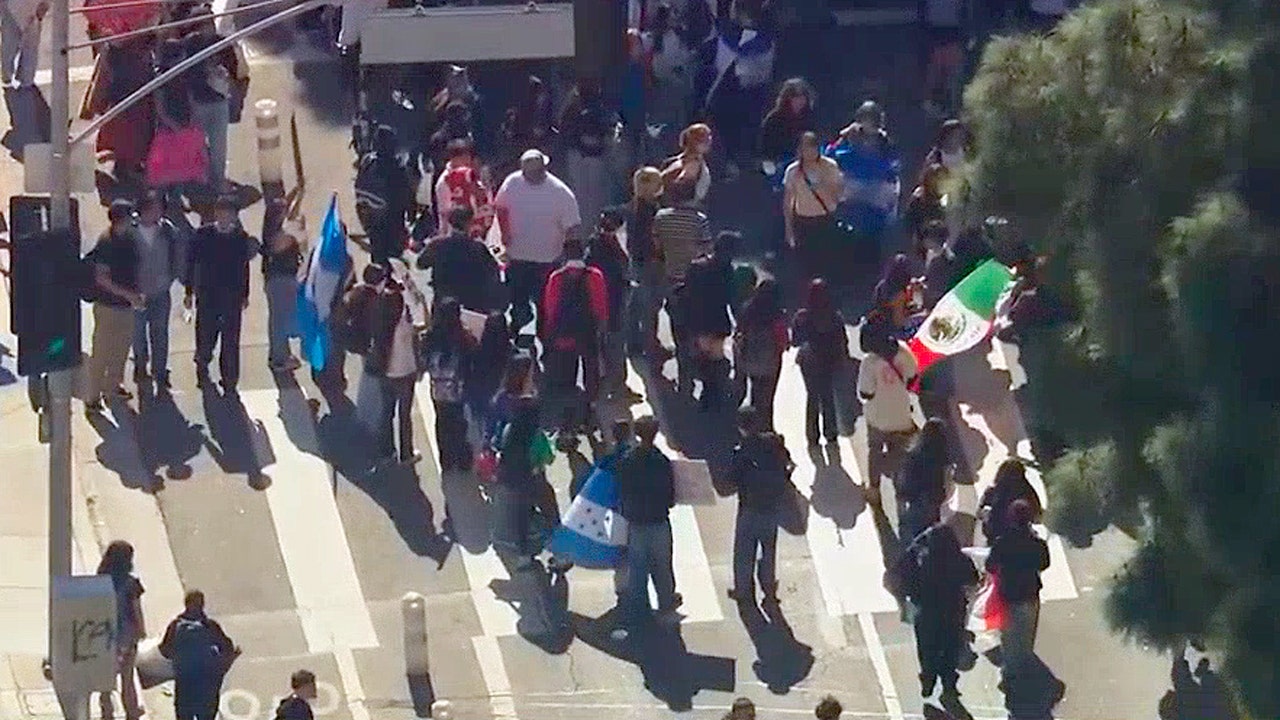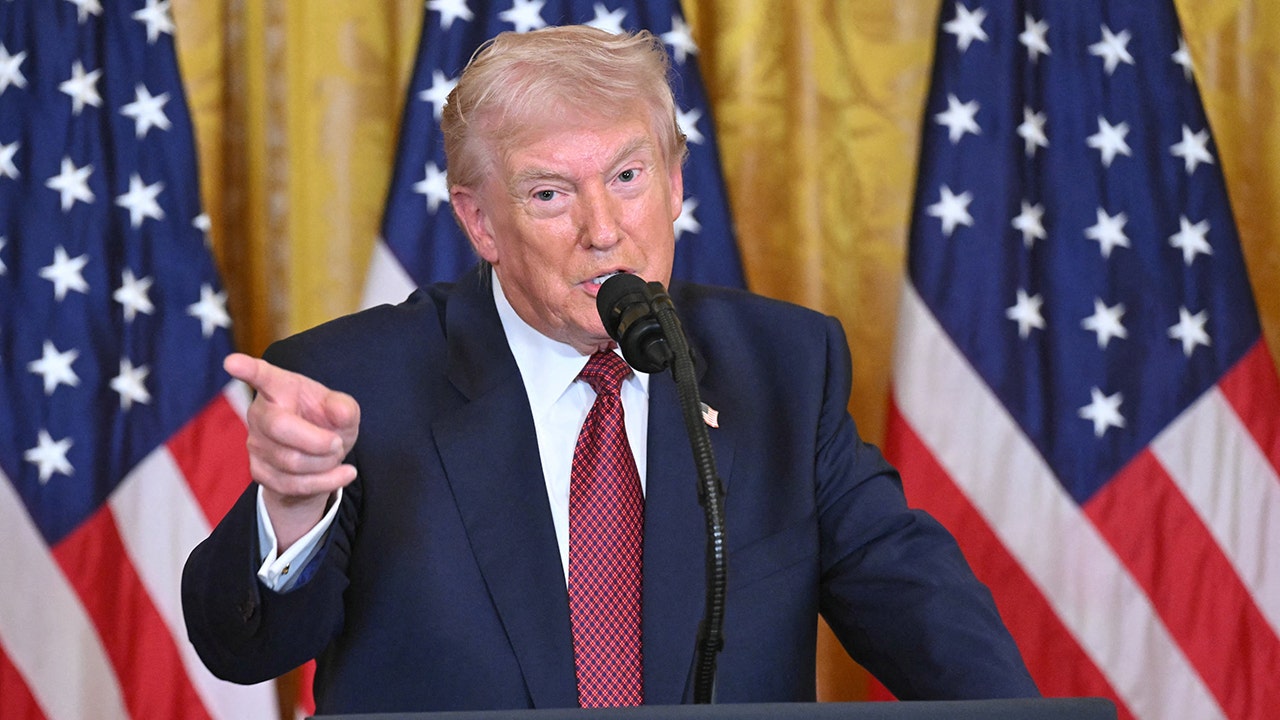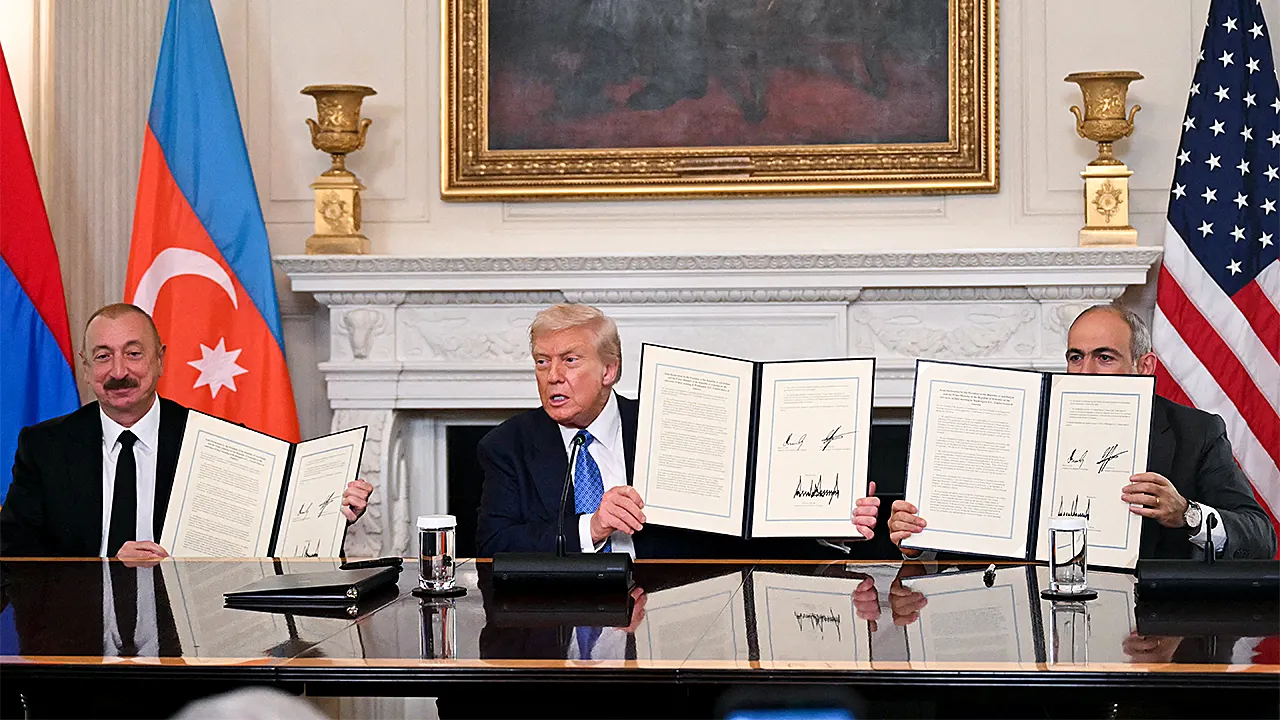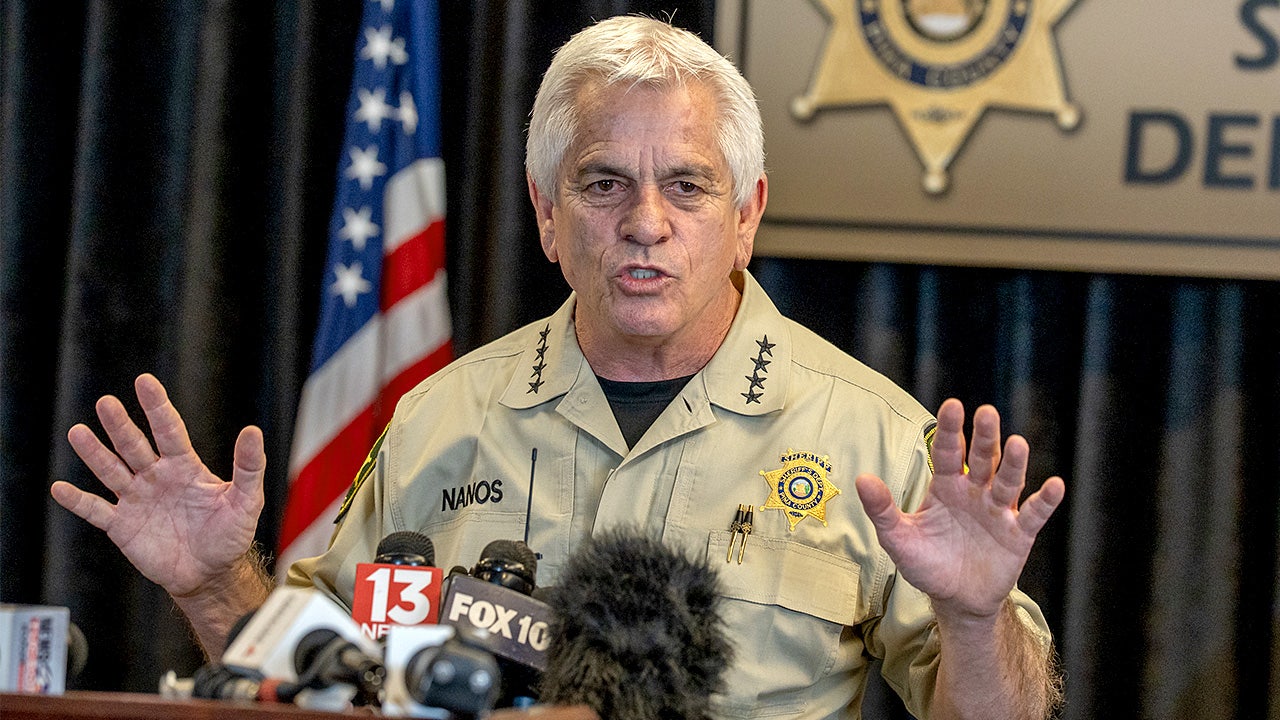NEWYou can now listen to Fox News articles!
In exclusive interviews with Fox News Digital, Armenian Prime Minister Nikol Pashinyan and Azerbaijani President Ilham Aliyev described a U.S.-brokered peace deal as a “historic” opportunity to end more than three decades of conflict and to launch a new era of cooperation in the South Caucasus.
Speaking separately, both leaders credited former President Donald Trump and U.S. Special Envoy Steve Witkoff for guiding months of negotiations that produced the framework agreement.
They outlined plans for trade, infrastructure and investment while acknowledging that key political and humanitarian issues may still need to be resolved before the deal is finalized.
TRUMP TO HOST ARMENIA, AZERBAIJAN LEADERS AHEAD OF PEACE PLEDGE AS WHITE HOUSE EYES NOBEL PEACE PRIZE
Competing views on constitutional changes
Aliyev said the agreement cannot be formally signed until Armenia amends its constitution, which he claims still questions Azerbaijani sovereignty.
“It’s kind of their homework,” Aliyev said. “As soon as it is done … the final peace agreement will be signed.”
Pashinyan rejected that condition, insisting Armenia is already committed to respecting territorial integrity and has “no territorial claims” towards any neighbor. He confirmed that his government is drafting a new constitution but called it an “internal issue” unrelated to the peace terms.
Economic cooperation and the TRIPP corridor
One central pillar of the deal is the creation of the “TRIPP corridor,” or Trump Route for International Peace and Prosperity, a transport and trade route designed to connect Armenia and Azerbaijan more directly while integrating the South Caucasus into broader international shipping and energy networks.
Aliyev called the project “one of the important parts of international transportation,” saying it would link the Caspian Sea region with markets in Europe, the Middle East and Asia. The corridor is expected to carry goods, energy supplies, and potentially serve as a rail hub for cross-regional trade.
Pashinyan described the agreement to open communications “based on principles of territorial integrity, sovereignty, jurisdiction, reciprocity and internationally recognized borders” as a breakthrough.
“Now we have de facto peace … it is time to have common investment projects, to have economic cooperation,” he said. “The involvement of the U.S. will make this whole story even more attractive for potential investors.”
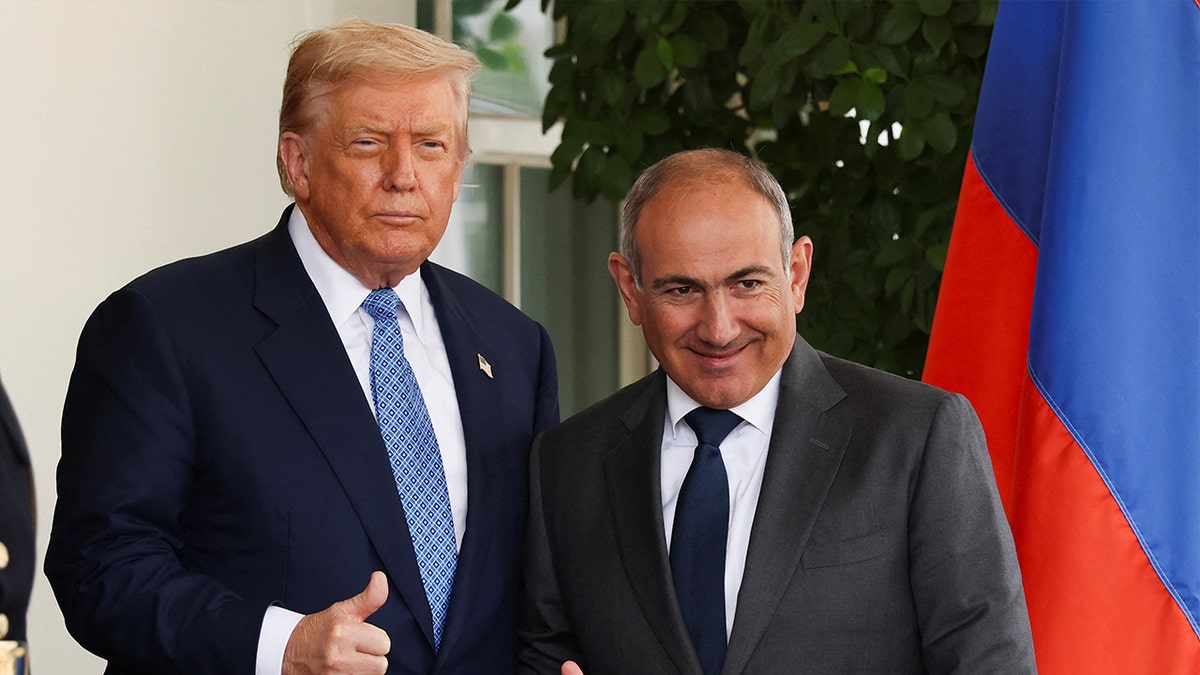
Humanitarian issues remain
The status of refugees and detainees from the Nagorno-Karabakh conflict remains unsettled. Tens of thousands of ethnic Armenians fled the region after Azerbaijan regained control in the 2020 war and a 2023 military operation. Many resettled in Armenia, but disputes continue over the right to return, property claims and the fate of those detained during and after the fighting.
Azerbaijan maintains that prisoners in its custody are combatants or saboteurs, while Armenia and international human rights groups describe many of them as political prisoners. Pashinyan cautioned that raising “very sensitive issues” too aggressively could risk reigniting tensions.
“The issue of refugees is important, but we need to concentrate on signing the peace agreement … to poke continuously some very sensitive issues could revive the conflict, you know, and I think it is very important now for both Armenia and Azerbaijan to concentrate on implementation what already has been agreed.”
FROM TALK TO TACTICS: TRUMP PIVOTS ON RUSSIA STRATEGY TO END WAR
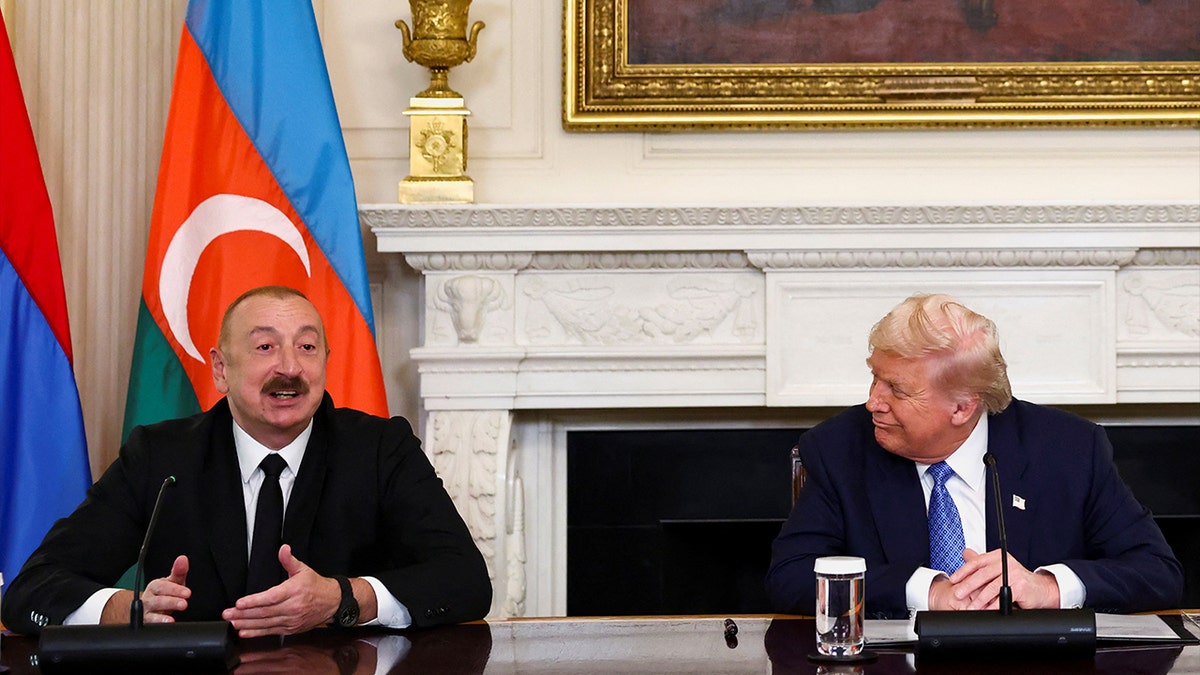
Praise for Trump, criticism of Biden
Aliyev praised Trump’s direct involvement in the peace process and criticized what he called unfair portrayals of Azerbaijan under the Biden administration. He pointed to Azerbaijan’s cooperation with U.S. military efforts in Iraq and Afghanistan and said Trump’s return to active diplomacy made the current breakthrough possible.
“It was only President Trump … immediately he jumped in the [peace] process,” Aliyev said, adding that if Trump had remained in office after the 2020 election, “probably what we are experiencing today … [would have happened] earlier.”
White House ceremony and regional significance
The interviews came hours after Pashinyan and Aliyev joined Trump at the White House to announce the agreement — a rare moment of public unity in a region long defined by war, blockades and mistrust.
While the framework sets the stage for normalized relations, both leaders acknowledged that decades of hostility will not disappear overnight. “It isn’t possible to change everything during a day, a week or even a year,” Pashinyan said. “But this is a very bright expression of what we want — both leaders, President Aliyev and myself — we want to change this whole situation.”
For Trump, the event marked a high-profile example of his deal-making credentials on the world stage. For Armenia and Azerbaijan, it was a step toward a future that both say they are ready to build — if the remaining disputes can be resolved.
Read the full article here
